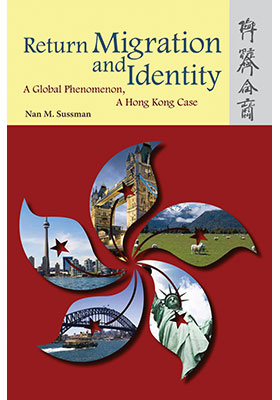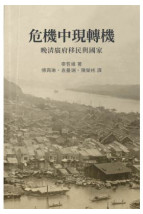Return Migration and Identity
A Global Phenomenon, A Hong Kong Case
(香港移民的回流與身份認同)
ISBN : 978-988-8028-84-9
November 2010
368 pages, 6″ x 9″, 11 b&w illus.; 6 tables
Ebooks
The global trend for immigrants to return home has unique relevance for Hong Kong. This work of cross-cultural psychology explores many personal stories of return migration. The author captures in dozens of interviews the anxieties, anticipations, hardships and flexible world perspectives of migrants and their families as well as friends and co-workers.
The book examines cultural identity shifts and population flows during a critical juncture in Hong Kong history between the Sino-British Joint Declaration in 1984 and the early years of Hong Kong’s new status as a special administrative region after 1997. Nearly a million residents of Hong Kong migrated to North America, Europe and Australia in the 1990s. These interviews and analyses help illustrate individual choices and identity profiles during this period of unusual cultural flexibility and behavioral adjustment.
“Sussman effectively weaves together themes about migration and remigration from such diverse sources as arts and literature, history, sociology, and her own discipline of psychology. This book will make an excellent contribution to research on acculturation, cross-cultural transition and adaptation, identity and migration.” —Colleen Ward, Victoria University of Wellington
“This book contributes significantly to the hardly researched topic of the complex cultural identities of return migrants to Hong Kong. An extensive examination of the relevant historical and sociocultural contexts, and a lively review of the relevant literature in cultural psychology and human geography, sets the scene for investigating the many layers and typology of individual differences in cultural identity among the returnees who had earlier emigrated to Australia and Canada prior to the handover of Hong Kong to China in 1997. I especially appreciate the focus on the main finding of returnee satisfaction and an additive cultural identity profile among Hong Kongers, contrasting with remigrants in the West.” —Anita Mak, University of Canberra




